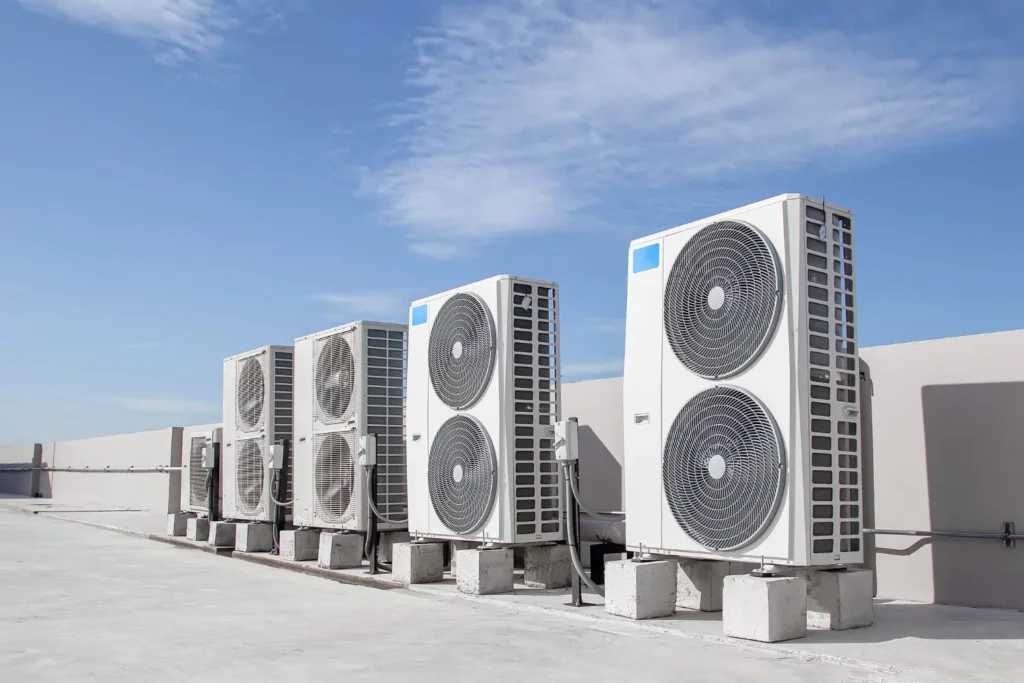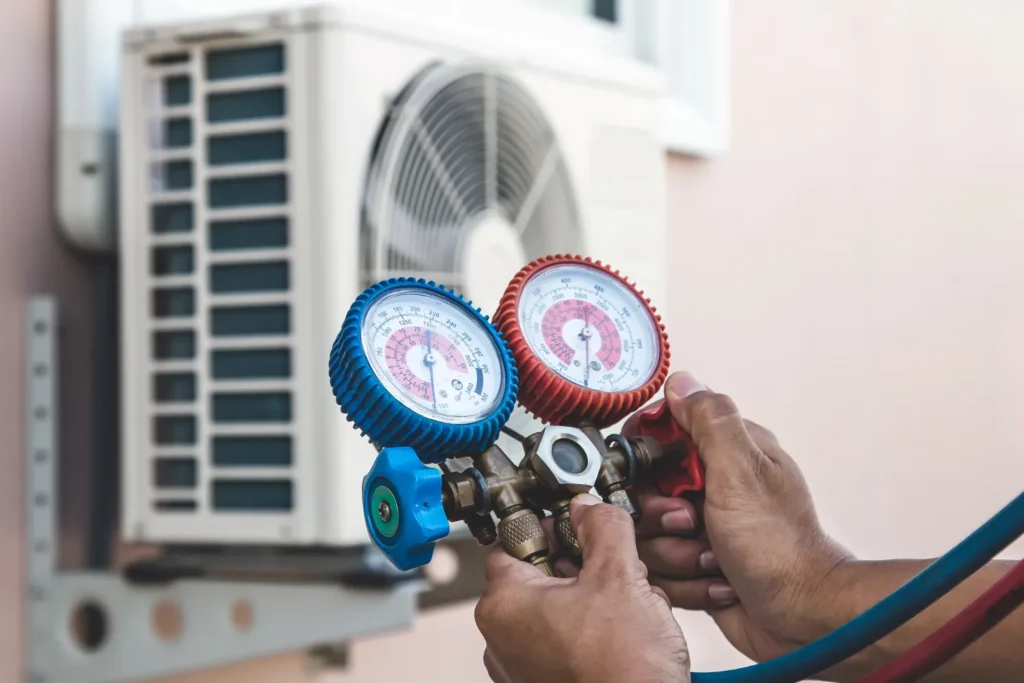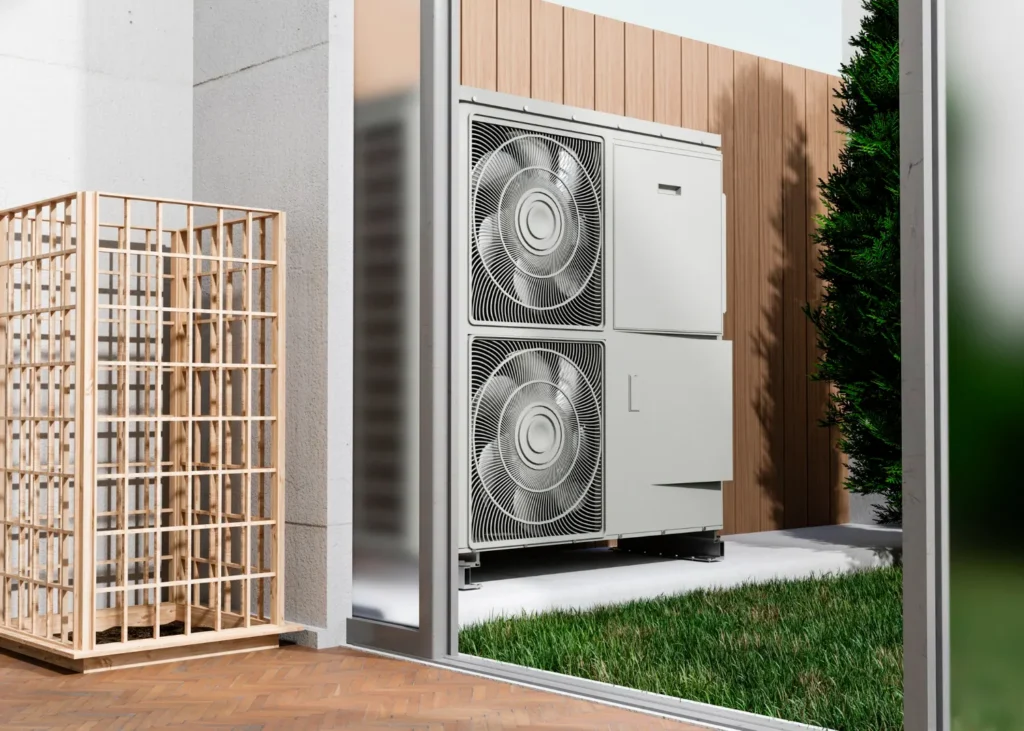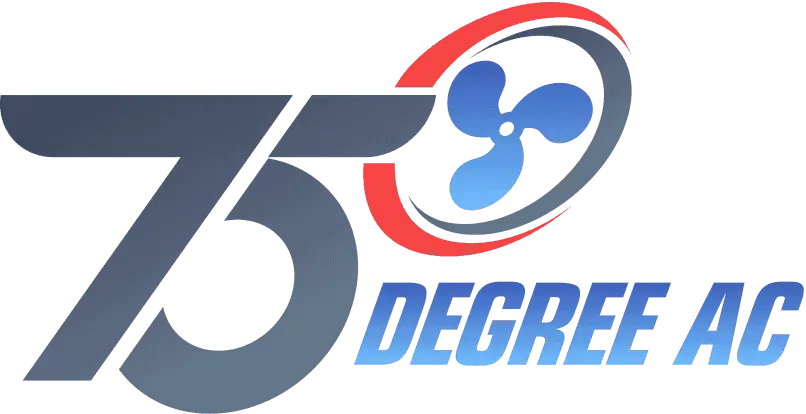As far as your HVAC system is concerned, ensuring that you choose the correct equipment size is crucial for maintaining Comfort and efficiency in your home or commercial space. Whether too small or too large, an Wrong size HVAC system can lead to a range of issues that can impact your Comfort, energy bills, and even the value of your property.
Reduced Comfort, excessive humidity levels, unnecessary wear and tear, high energy bills, and even diminished property value are just some of the consequences of having an HVAC system that is not the right size for your needs. To avoid these problems, it’s necessary to consult with a residential or commercial HVAC contractor who can properly assess your space and recommend the appropriate size system based on a variety of factors.
The Concept of HVAC Sizing

If your HVAC system needs to be correctly sized for your space, you could encounter various issues that impact Comfort and efficiency. HVAC sizing refers to selecting equipment with the proper cooling capacity to adequately heat or cool your home or commercial building. This crucial decision can significantly affect your comfort levels, energy bills, and even the lifespan of your HVAC system.
Determining the Ideal Equipment Capacity
Equipment capacity is a critical factor in ensuring your HVAC system operates efficiently. Your residential or commercial HVAC contractor considers various aspects when determining the ideal capacity for your space. Factors such as the size of the area to be heated or cooled, the building’s layout, insulation levels, and the condition of ductwork all play a role in selecting suitable equipment capacity. Ignoring these factors could lead to discomfort, excessive wear and tear, and increased energy consumption.
Common Misconceptions About HVAC Sizing
A common misconception about HVAC sizing is that bigger is always better. However, installing an oversized HVAC system can lead to inconsistent temperatures, excessive humidity levels, and unnecessary wear and tear on the equipment. On the other hand, undersized systems may need help to maintain your desired comfort levels, leading to constant operation and high energy bills.
Plus, incorrect HVAC sizing can also impact the value of your property. When selling a home or commercial building with improperly sized equipment, potential buyers may view the need for system replacement as a drawback, potentially affecting the property’s value and marketability.
Comfort Issues with Wrong Size HVAC System
Too Small HVAC Systems and Insufficient Heating/Cooling
One of the significant issues with an HVAC system that needs to be more prominent is the need for sufficient heating or cooling. This can result in discomfort for occupants, especially in areas far from vents or air handling units. Inadequate capacity means the system has to work harder to maintain a comfortable temperature, leading to uneven heating or cooling throughout the space.
Too Large HVAC Systems and Erratic Temperature Control
One of the main drawbacks of having an HVAC system that is too large is erratic temperature control. An oversized system will cycle on and off frequently, causing the space to quickly fluctuate between feeling too cold and too warm. This inconsistent temperature can be frustrating for occupants and result in decreased comfort levels.
It is essential to understand the importance of selecting the proper size HVAC system to maintain Comfort in residential or commercial spaces. It is necessary to consider factors such as the size of the area, insulation levels, and layout when determining the appropriate capacity required. Failure to do so can lead to discomfort, inefficient operation, increased energy bills, and potential damage to the equipment.
Humidity and Air Quality Concerns
The Role of HVAC Systems in Regulating Humidity
All HVAC systems play a crucial role in maintaining comfortable humidity levels within indoor spaces. Any deviation from the optimal humidity range can lead to a variety of issues, including mold growth, musty odors, and discomfort for occupants. Efficient HVAC systems can extract excess moisture from the air, helping to create a healthier and more pleasant environment.
How Incorrect HVAC Size Affects Indoor Humidity and Health

HVAC systems that are either too large or too small for a space can significantly impact indoor humidity levels and air quality. With an Wrong size HVAC system, the unit cycles on and off frequently, failing to run long enough to remove excess moisture effectively. On the other hand, undersized systems need help to adequately regulate humidity, leading to elevated moisture levels that can contribute to mold growth and poor air quality. Proper HVAC sizing is necessary for maintaining a healthy indoor environment.
Impact on Energy Efficiency
Consequences of an Undersized HVAC System on Energy Bills
Your HVAC system plays a crucial role in regulating the temperature of your home or commercial space, but using the wrong size equipment can have significant repercussions on your energy bills. An Wrong size HVAC system will need help to keep up with the demand for heating or cooling, causing it to run continuously to reach the desired temperature. This constant operation leads to excessive energy consumption and high utility bills as the system works overtime to compensate for its inadequate capacity.
The Inefficiency of Oversized HVAC Equipment
Regarding energy efficiency, having an oversized HVAC system can be just as detrimental as having an undersized one. An oversized HVAC system leads to frequent cycling on and off, which not only results in unnecessary wear and tear on the equipment but also drives up energy bills. These systems consume more power during startup than during continuous operation, causing energy wastage and inefficiency.
The inefficient operation of an oversized HVAC system stems from its inability to run at optimal capacity and match the cooling or heating requirements of the space. This constant cycling on and off disrupts the system’s energy usage patterns and leads to decreased energy efficiency, ultimately impacting the overall performance and cost of running the HVAC system.
Energy efficiency is critical to consider when selecting the proper size HVAC system for your home or commercial building, as it directly affects your energy consumption and utility costs. By ensuring that your HVAC system is appropriately sized for your space, you can optimize energy efficiency, reduce energy bills, and enhance the overall performance of your heating and cooling equipment.
Increased Wear and Tear
The Strain on Undersized HVAC Systems
To combat the inadequate cooling or heating needs of a space, Wrong size HVAC system are forced to work overtime, constantly running to try and reach the desired temperature. This increased workload puts a significant strain on the components of the system, leading to excessive wear and tear. The constant operation of an undersized HVAC system not only decreases its efficiency but also shortens its lifespan, ultimately resulting in the need for more frequent repairs and replacements.
Frequent Cycling and Its Effects on Oversized Units
When an HVAC system is oversized for a particular space, it tends to cycle on and off more frequently than necessary. This continuous cycling, known as short cycling, can have detrimental effects on the overall performance and longevity of the unit. An oversized HVAC system’s frequent starting and stopping increases energy consumption, leading to higher utility bills and putting unnecessary stress on the components, causing them to wear out faster.
This constant on-off cycling of an Wrong size HVAC system not only impacts its efficiency but also contributes to a higher incidence of breakdowns and maintenance requirements. It is crucial to ensure that your HVAC system is correctly sized for the space it needs to heat or cool to prevent these issues and maintain the optimal performance of your equipment.
The Financial Implications
Short-Term and Long-Term Costs of Improper HVAC Sizing
Now, let’s probe into the financial impacts of having the Wrong size HVAC system in your home or commercial building. The repercussions of improper sizing extend beyond just comfort issues. Short-term, inadequate, or oversized HVAC equipment can lead to significantly higher energy bills. A system that is too small needs to constantly run to maintain a comfortable temperature, driving up energy consumption. On the other hand, an oversized system that frequently cycles on and off also wastes energy and spikes utility costs.
Effect on Property Value and Potential Resale Issues
The incorrect sizing of HVAC systems can also have a notable impact on the property value of your home or commercial space. Any potential buyer looking to purchase a property with an improperly sized system may factor in the cost of replacing or upgrading the HVAC when making an offer. This could result in a lower valuation of your property, ultimately affecting its resale potential.
Potential buyers might view an inadequate HVAC system as a potential hassle or financial burden, leading to negotiations that could diminish the overall value of your property. Ensuring your HVAC system is the right size not only provides comfort and efficiency benefits but also protects the long-term value of your investment.
Sizing HVAC Systems Correctly

Despite the potential problems caused by installing the Wrong size HVAC system, some strategies can help you select the suitable capacity for your needs. One key factor in determining the correct size is to have a professional assessment and calculations done.
Professional Assessment and Calculation Strategies
One way to properly size an HVAC system is to have a professional HVAC contractor assess your space and calculate the appropriate capacity based on factors such as the layout of your home or business, insulation levels, and heat-generating activities. These variables can provide a more accurate recommendation for your heating and cooling needs, reducing the risk of discomfort, excess wear and tear, high energy bills, and diminished property value.
Considerations for Retrofit and Upgrade Scenarios
Sizing an HVAC system correctly is crucial, especially in retrofit and upgrade scenarios. When considering replacing or upgrading your current system, it’s essential to consider the potential changes in your space that may impact the necessary capacity. By ensuring the new system is correctly sized, you can avoid problems such as reduced Comfort, excessive humidity levels, unnecessary wear and tear, high energy bills, and diminished property value.
Final Words – Wrong size HVAC system
With these considerations in mind, it is evident that selecting the proper size HVAC system is crucial for maintaining Comfort, efficiency, and the overall value of your property. Choosing a system that is too small or too large can lead to various issues, from reduced comfort levels and excessive humidity to increased wear and tear and high energy bills. Not only can this impact your daily quality of life, but it can also have long-term implications on the functionality and longevity of your HVAC equipment.
Therefore, when installing or replacing your HVAC system, it is imperative to consult with a qualified HVAC contractor who can accurately assess your needs and recommend the appropriate size unit for your space. By considering various factors such as space requirements, layout, insulation, and heat-generating activities, you can ensure that your HVAC system operates efficiently and effectively and contributes positively to the overall comfort and value of your home or commercial building.
FAQ About Wrong Size HVAC System
What are the dangers of installing the wrong size HVAC system?
Installing the wrong size HVAC system can lead to reduced Comfort, excessive humidity levels, unnecessary wear and tear, high energy bills, and diminished property value.
How does an excessively small HVAC system affect Comfort?
A minimal HVAC system cannot effectively cool or heat your living or work space, leading to discomfort, especially in areas far from vents or indoor air handling units.
What is the impact of an HVAC system that is too large?
A system that is too large will cycle on and off aggressively, causing fluctuations in temperature and discomfort in the space being heated or cooled.
Why do excessive humidity levels occur with the wrong size HVAC system?
In humid areas, an HVAC system that is too large may not run long enough to effectively remove water vapor from the air, resulting in uncomfortable humidity levels in your home or office.
How does the wrong size HVAC system affect energy bills?
An HVAC system that is either too small or too large can drive up energy bills due to constant running or inefficient cycling, leading to increased power usage and higher costs.
